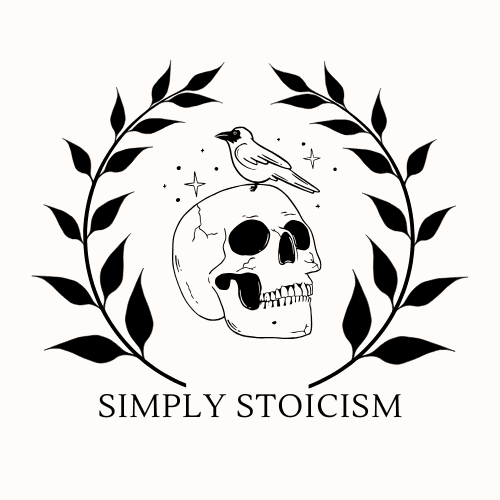40 Stoic Exercises for Daily Life: A Modern Guide to Ancient Wisdom
Transform your daily life with 40 practical Stoic exercises used by Marcus Aurelius and Seneca. Learn ancient wisdom for modern challenges, from morning routines to crisis management. Includes step-by-step instructions and real-world applications.

Jon High
·
Nov 15, 2024
Ever notice how self-help books love to promise "life-changing" revelations, only to leave you feeling like you just ate a bag of mental cotton candy? All sugar rush, no sustenance.
Here's the thing: those ancient Stoic philosophers? They weren't just sitting around theorizing about life. They were building a practical toolkit for dealing with everything from minor annoyances to major life crises. And unlike that $997 "Transform Your Life" course your cousin keeps pushing on Instagram, this stuff has been battle-tested for over 2,000 years.
What follows isn't just another list of feel-good quotes. These are 40 concrete exercises that you can start using today to build real mental resilience, emotional strength, and daily peace. Think of it as your personal guidebook for not losing your shit when life inevitably tries to test you.
Why Stoic Exercises Actually Work
Before we dive in, let's get one thing straight: Stoicism isn't about suppressing emotions or pretending nothing bothers you. It's about training your mind to respond to life's challenges with wisdom instead of reaction. It's like going to the gym, but for your mental and emotional muscles.
The exercises below are grouped into five categories:
Morning Practices
Mindset Shifts
Emotional Resilience
Evening Reflection
Crisis Management
Let's get started.
Morning Practices (1-8)
1. The View From Above
"Rise above yourself and look down on the world from high above... See the endless cycle of birth and death." - Marcus Aurelius
The Exercise: When you wake up, take 2 minutes to imagine floating above your city, then your country, then the planet. Watch your "huge" problems shrink to their true size.
Modern Application: Next time your coffee order is wrong or your Wi-Fi drops during a meeting, zoom out. In the cosmic scale, how much does this really matter?
2. Negative Visualization (Premeditatio Malorum)
The Exercise: Spend 60 seconds imagining losing something you value - your phone, your job, your health. Then open your eyes and appreciate having it right now.
Why It Works: This isn't about being pessimistic. It's about cultivating genuine gratitude and preparing for life's curveballs. Plus, it makes that working coffee maker seem pretty awesome.
3. Morning Intentions
Write down three things:
What could go wrong today?
What virtues might I need?
What's in my control and what isn't?
4. The Dichotomy of Control
Before checking your phone, list:
Things I can fully control
Things I can influence but not control
Things I cannot control at all
5. The Daily Virtue Focus
Pick one virtue to practice today:
Courage
Justice
Self-Control
Wisdom
6. The Obstacle Is the Way
Exercise: Write down your biggest challenge for today. Then ask: "How could this obstacle make me stronger?"
7. Morning Memento Mori
Remind yourself: "I may not live through this day." Not to be morbid, but to make each moment count.
8. The Gratitude Walk
Take a 5-minute walk and find three things you normally take for granted.
Mindset Shifts (9-16)
9. The Reserve Clause
Add "fate permitting" to your plans. Instead of "I will finish this project today," think "I will finish this project today, fate permitting."
10. Role Meditation
Ask yourself: "What role am I playing right now?"
Parent?
Professional?
Friend?
Citizen?
Then ask: "What does excellence look like in this role?"
11. The Inner Citadel
Exercise: When triggered, pause and ask:
Can external events force me to be angry?
Can they make me lose my principles?
Can they control my response?
12. The Perspective Flip
When someone annoys you:
Imagine their perspective
List three possible reasons for their behavior
Choose the most charitable interpretation
13. The Value Test
Before buying something or committing to plans, ask:
Will this make me more virtuous?
Will this bring lasting satisfaction?
Am I chasing external validation?
14. The Circles of Control
Draw three circles:
Inner: Total control (thoughts, actions)
Middle: Some influence (relationships, work)
Outer: No control (weather, others' opinions)
Focus your energy accordingly.
15. The Present Moment Check
Set a random alarm 3 times today. When it rings, ask:
Am I in the past?
Am I in the future?
Or am I here now?
16. The Voluntary Discomfort Practice
Choose one small daily discomfort:
Cold shower
Skip a meal
Take the stairs
Sleep on the floor
Emotional Resilience (17-24)
17. The Pause Practice
When emotionally triggered:
Pause
Take three breaths
Ask: "Is this worth disturbing my peace?"
18. The Projection Exercise
When judging others, ask:
Do I do this too?
Have I ever made similar mistakes?
Am I seeing my own faults in others?
19. The Impermanence Reminder
When experiencing strong emotions:
Notice the feeling
Label it
Remember: "This too shall pass"
20. The Anchor Breath
During stress:
Feel your feet on the ground
Take one deep breath
Say: "I can handle this"
21. The Reframe Practice
For any "negative" event, find:
One potential benefit
One lesson to learn
One reason to be grateful
22. The Opinion Fast
For one hour:
Don't judge anything as good or bad
Simply observe what is
Notice how this feels
23. The Privilege Flip
When feeling entitled, list:
3 basic needs you have
3 luxuries you enjoy
3 people who helped you get here
24. The Fear Inquiry
When afraid, ask:
What's the worst that could happen?
Could I survive it?
What resources do I have?
Evening Reflection (25-32)
25. The Daily Review
Ask yourself:
What went well today?
What could I have done better?
What did I learn?
26. The Virtue Audit
Review your chosen daily virtue:
Where did I practice it?
Where did I fall short?
How can I improve tomorrow?
27. The Gratitude Triangle
List:
One person who helped you
One challenge you overcame
One simple pleasure you enjoyed
28. The Knowledge Check
Ask yourself:
What did I learn today?
What wisdom did I apply?
What question remains unanswered?
29. The Relationship Review
Reflect on:
Who did I help today?
Who helped me?
Did I cause anyone harm?
30. The Progress Log
Write down:
One small win
One area of growth
One intention for tomorrow
31. The Evening Preparation
Set up tomorrow for success:
Review schedule
Prepare clothes/items
Set one main priority
32. The Sleep Meditation
Before sleeping, review:
Three things you're grateful for
Two things you did well
One thing you'll do better tomorrow
Crisis Management (33-40)
33. The Emergency Protocol
When crisis hits:
Breathe for 60 seconds
Name what you can control
Take one small action
34. The Worst-Case Scenario
When anxious:
Write the worst possible outcome
Plan how you'd handle it
Notice you can cope
35. The Resource Inventory
List your available:
Internal resources (skills, knowledge)
External resources (people, tools)
Past experiences of overcoming
36. The Problem Scale
Rate your problem:
Will this matter in 10 minutes?
Will this matter in 10 months?
Will this matter in 10 years?
37. The Action Focus
During difficulties:
Stop thinking about "why me?"
Ask "what now?"
Take one constructive step
38. The Support Review
Identify:
Who can help?
What help do I need?
How can I ask effectively?
39. The Wisdom Search
Ask yourself:
What would [admired person] do?
What advice would I give a friend?
What does my future self wish I'd do?
40. The Recovery Route
After setbacks:
Acknowledge the pain
Find the lesson
Plan the next step
How to Use These Exercises
Don't try to do all 40 at once. That's like trying to run a marathon when you've been binging Netflix for the past year. Start with one exercise from each category and practice it for a week.
Some tips for success:
Start small (2-3 minutes per exercise)
Be consistent (same time each day)
Keep a journal
Expect resistance
Celebrate small wins
Remember
These exercises aren't about becoming some emotionless robot or pretending life doesn't sometimes suck. They're about building the mental strength to handle whatever life throws at you with grace, wisdom, and maybe even a touch of humor.
The ancient Stoics faced plagues, wars, exile, and political chaos. If their tools worked then, imagine what they can do for your bad day at work or that awkward conversation you've been avoiding.
Start today. Pick one exercise. Practice it. Watch what happens.
Because here's the truth: Life is going to keep testing you whether you're prepared or not. Might as well build the mental muscles to ace those tests.
Which exercise will you try first?



